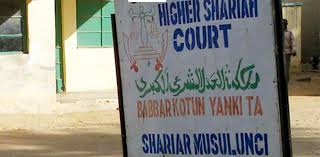A heated debate has emerged in Oyo State, Nigeria, as an Islamic group, the Supreme Council for Sharia in Nigeria, Oyo State chapter, prepares to launch a Sharia court in the state. The group has scheduled the inauguration ceremony for January 11, 2025, at the Muslim Community Islamic Centre in Oyo.
The planned launch has sparked widespread criticism, with many arguing that the South West, populated by Yoruba people, is not a suitable location for a Sharia court, given its dominance by Muslims in the North. Netizens have taken to social media to express their disapproval, with many warning that the implementation of Sharia law could lead to arbitrary arrests, oppression, and human rights violations, even for non-Muslims.
One social media user, #OurFavOnlineDoc, cautioned, “If sharia law gets implemented in your state, let me tell you ahead what will happen. You can be randomly arrested and imprisoned for ‘indecent dressing’. EVEN IF you are not a Muslim, EVEN if you are a Christian, EVEN IF you are a traditionalist, EVEN IF you don’t subscribe to Sharia, and EVEN IF you are an atheist.”
Another user, #BabaAjisefa, emphasized, “If you’re silent on this sharia law saga in the southwest, then you’re enabling it. Even if we can’t see the implications of the laws in other nations, we can see it in the north. The question is ‘what progress does it bring?’ And those that claim it will be for Muslims only don’t forget that was how they started in the north, and Hisbah can arrest anyone now. We reject Sharia law in its entirety. No to sharia law in Yorubaland.”
The controversy has also sparked concerns about the potential consequences of implementing Sharia law in Oyo State. Some have cited examples from other countries, such as Afghanistan, where the Taliban’s strict interpretation of Sharia law has led to widespread human rights abuses.
Despite the backlash, the Islamic group has not publicly responded to the criticisms. Attempts by journalists to reach the Chairman and Secretary of the Sharia Committee in Oyo, Dr. Rafiu Bello and Sulaimon Abuqoodi, were unsuccessful.
The controversy highlights the complex and sensitive nature of religious and legal issues in Nigeria, a country with a diverse population and a complex system of laws. As the debate continues, it remains to be seen how the situation will unfold.
The planned launch of the Sharia court has also raised questions about the role of religion in the governance of Oyo State. While some argue that the Sharia court will provide an alternative dispute resolution mechanism for Muslims in the state, others fear that it could lead to the erosion of secular values and the marginalization of non-Muslims.
The controversy highlights the complex and sensitive nature of religious and legal issues in Nigeria, a country with a diverse population and a complex system of laws. As the debate continues, it remains to be seen how the situation will unfold.



